About half or 54.2% of the respondents believe that the elections should be held in the regular term in 2024. Almost two-thirds or 61.3% of respondents would vote if elections were held tomorrow. According to the rating of the political parties and their leaders, VMRO-DPMNE and Hristijan Mickoski remain in the lead, according to the poll of MKD.mk which was conducted by the Market Vision agency on 1,200 respondents. The poll showed that the public has less and less trust that political parties are capable of implementing economic progress and development or pursuing a good foreign policy. Askee which political party has the capacity to create and implement the best economic program for Macedonia, 12.9 percent of respondents gave preference to VMRO-DPMNE, SDSM was trusted by 9.9 percent, and Levica by 3 .4%. 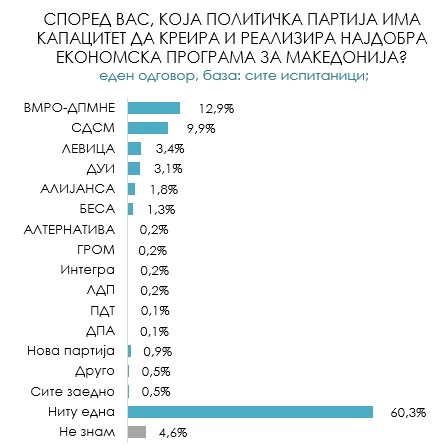 Regarding foreign policy, the difference is smaller: 14.8% for VMRO-DPMNE and 13% for SDSM.
Regarding foreign policy, the difference is smaller: 14.8% for VMRO-DPMNE and 13% for SDSM. 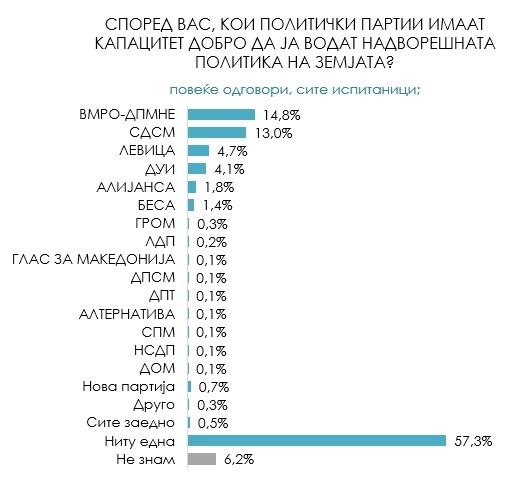 Hristijan Mickoski, the leader of VMRO-DPMNE, is the politician in whom the voters have the most confidence. After him are Dimitar Kovacevski, Ali Ahmeti, Dimitar Apasiev and Nikola Gruevski. More than half of the citizens do not trust any leader of the political parties on the Macedonian political scene.
Hristijan Mickoski, the leader of VMRO-DPMNE, is the politician in whom the voters have the most confidence. After him are Dimitar Kovacevski, Ali Ahmeti, Dimitar Apasiev and Nikola Gruevski. More than half of the citizens do not trust any leader of the political parties on the Macedonian political scene. 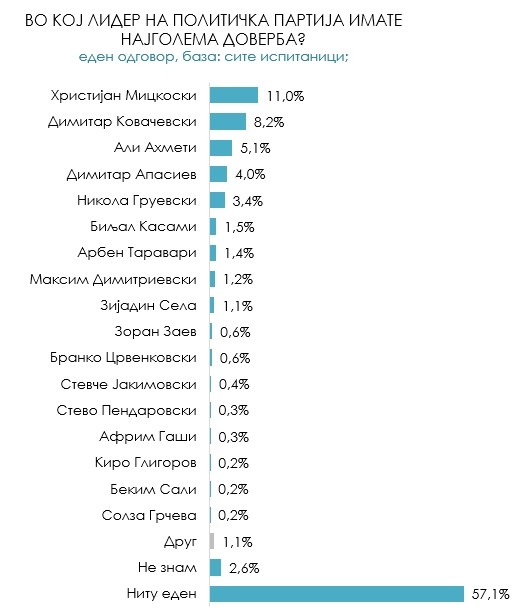 Most of the public believes that the next parliamentary elections should be held in the regular term in 2024. 33.5% of respondents are in favor of early elections.
Most of the public believes that the next parliamentary elections should be held in the regular term in 2024. 33.5% of respondents are in favor of early elections. 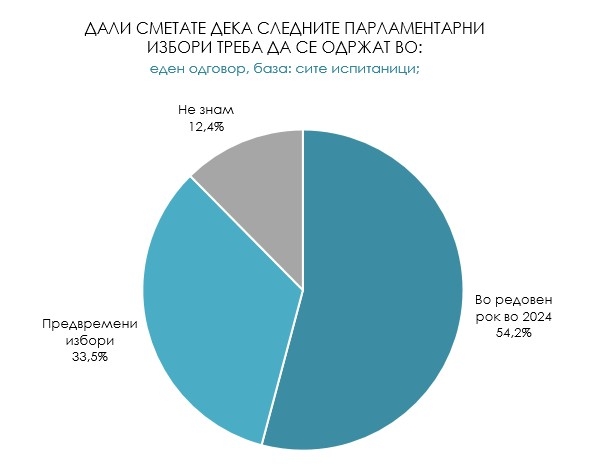 This pollshowed an increase in voters’ interest in going to the polls – 61.3 percent of the respondents answered that they would go out to vote in the next parliamentary elections. In the previous pollfrom last November, this percentage was 56.6%.
This pollshowed an increase in voters’ interest in going to the polls – 61.3 percent of the respondents answered that they would go out to vote in the next parliamentary elections. In the previous pollfrom last November, this percentage was 56.6%. 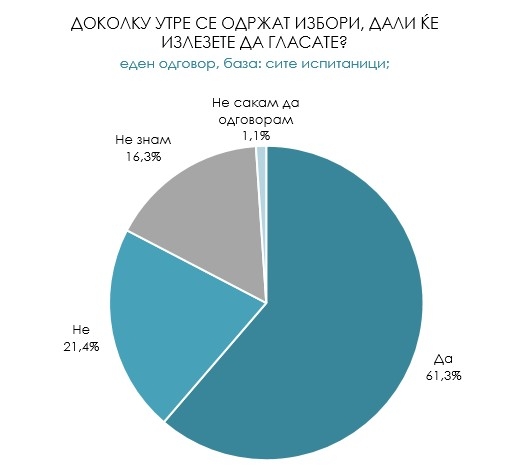 And this poll shows that VMRO-DPMNE has a stable advantage over other political parties. Asked which party you will vote for in the next elections, 21.8% of respondents are for VMRO-DPMNE, 12.4% for SDSM, 8.2% for DUI, 4 would vote for Levica, 5%, for Alliance for Albanians 3.7%, for Besa 2.3%… More than 40% answered with “I don’t know”, “I don’t want to reveal” or “I will cancel the ballot”.
And this poll shows that VMRO-DPMNE has a stable advantage over other political parties. Asked which party you will vote for in the next elections, 21.8% of respondents are for VMRO-DPMNE, 12.4% for SDSM, 8.2% for DUI, 4 would vote for Levica, 5%, for Alliance for Albanians 3.7%, for Besa 2.3%… More than 40% answered with “I don’t know”, “I don’t want to reveal” or “I will cancel the ballot”. 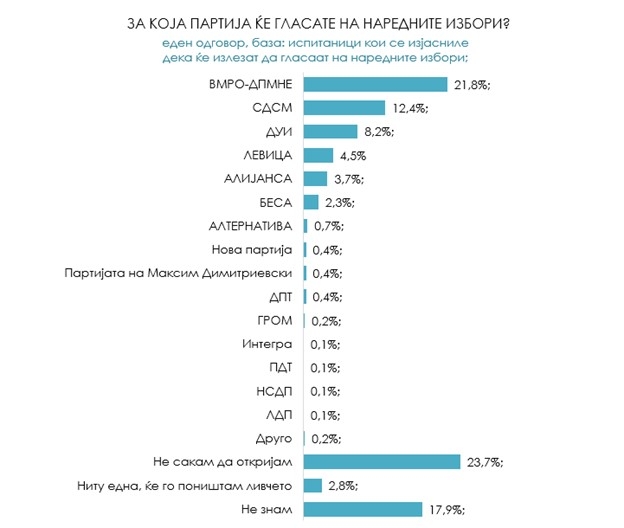 The poll was conducted from February 6 to 16 using the CATI method – computer-assisted telephone polling, on a sample of 1,067 respondents (statistical error: 3%; confidence interval: 95%). The sample is representative at the level of Macedonia according to: region, gender, age and ethnicity according to the data on the resident population from the 2021 census.
The poll was conducted from February 6 to 16 using the CATI method – computer-assisted telephone polling, on a sample of 1,067 respondents (statistical error: 3%; confidence interval: 95%). The sample is representative at the level of Macedonia according to: region, gender, age and ethnicity according to the data on the resident population from the 2021 census.
MKD.mk poll: VMRO-DPMNE has double lead over SDSM





Comments are closed for this post.